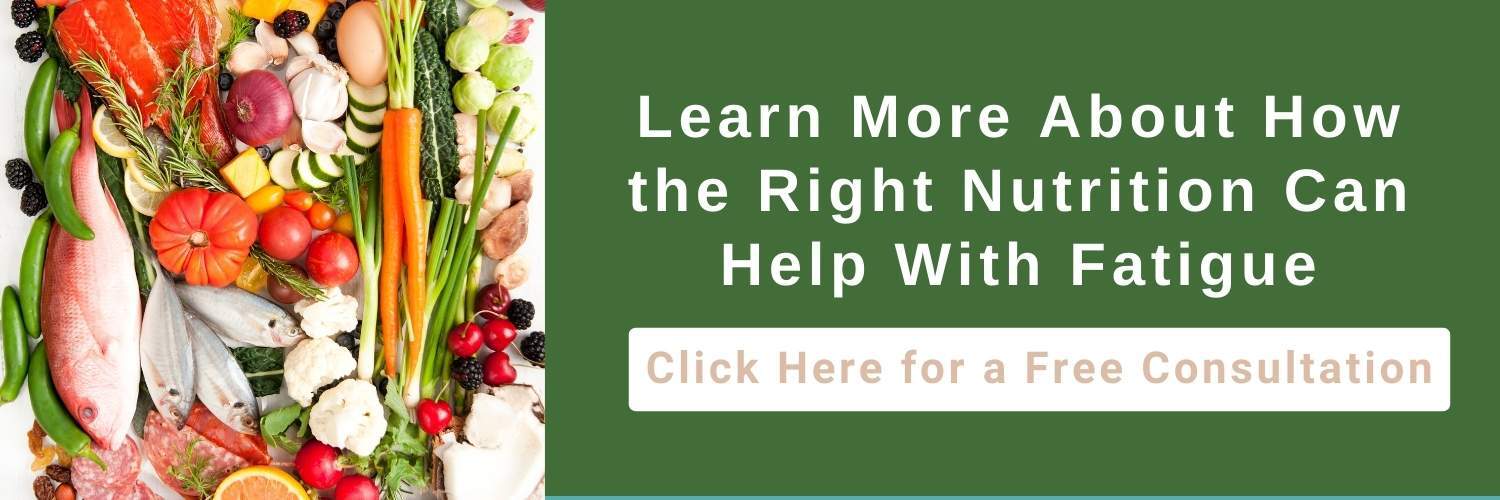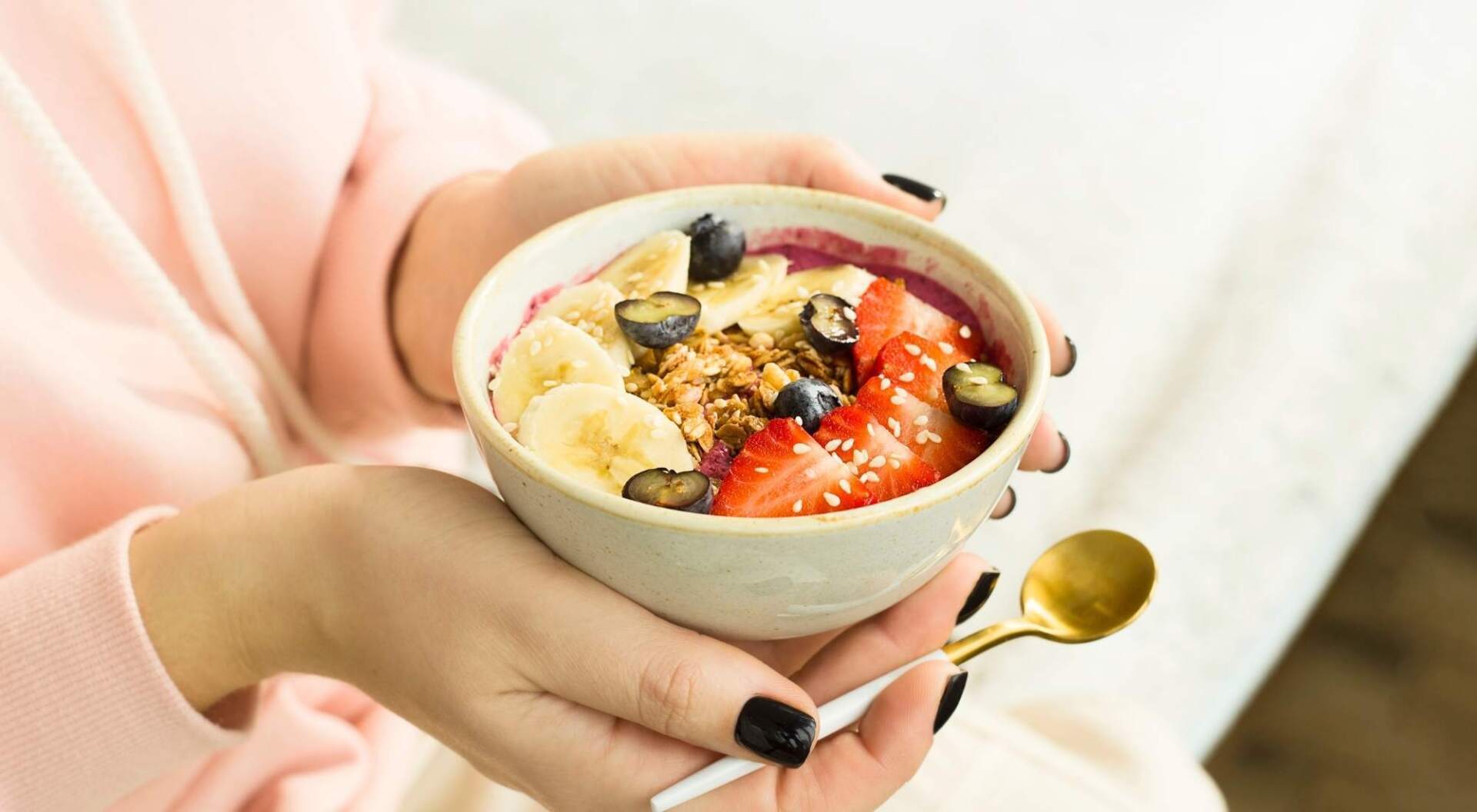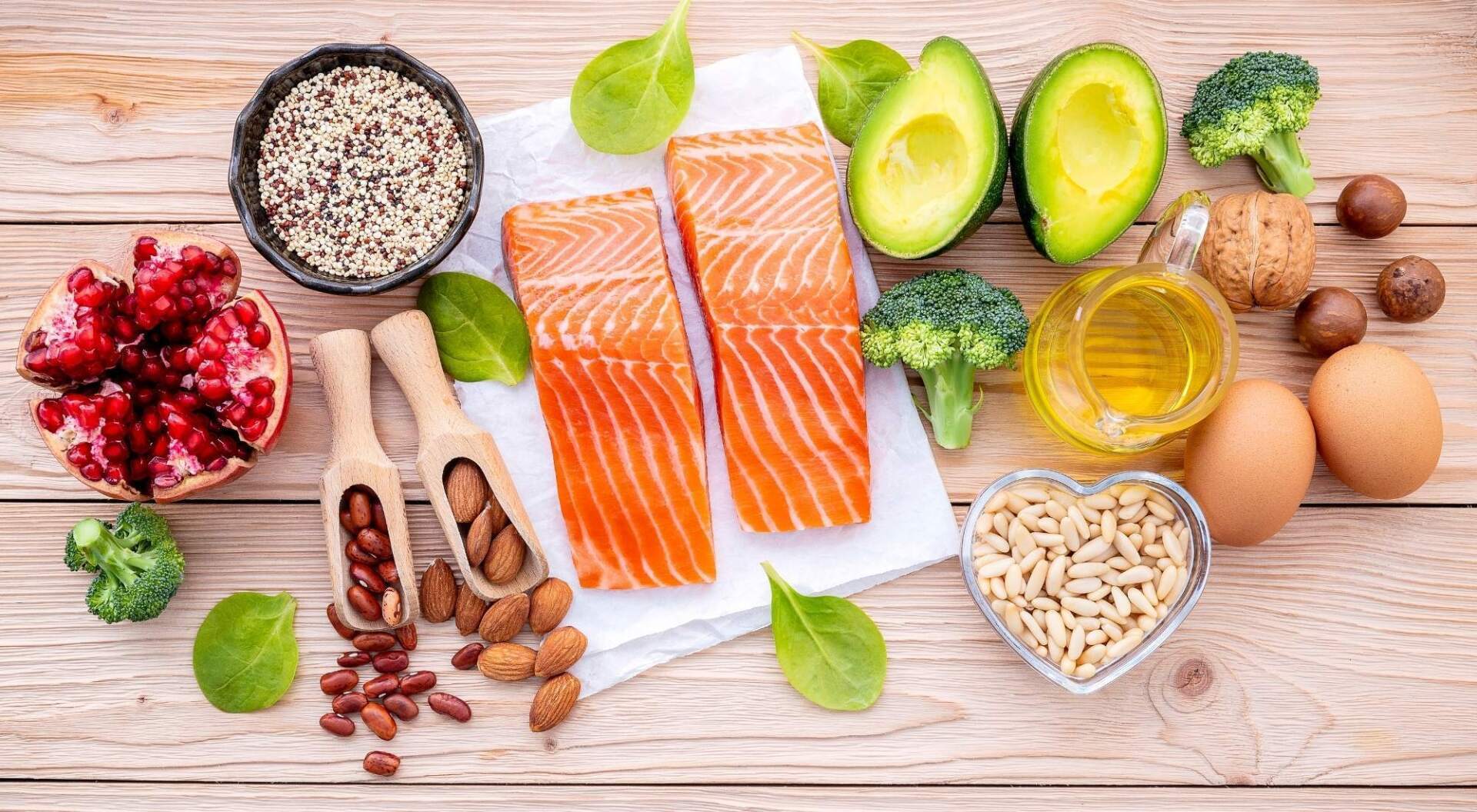9 Foods To Boost Energy and Fight Fatigue (Plus Foods To Avoid)
"The content below is not intended to be a substitute for professional medical advice, diagnosis, or treatment. Always seek the advice of your physician or other qualified health provider with any questions you may have regarding a medical condition."
Everyone has an “off day” once in a while. A day where you feel like staying in bed or binge-watching the new season of your favorite show. One of those days when there isn’t enough caffeine in the world to prevent you from crashing.
It happens to us all — but, if you start to feel like this most days, you might be suffering from fatigue.
In many cases, fatigue is directly related to what we eat or what we don't eat.
In this guide, we’ll discuss the main causes of fatigue and share 9 amazing energy-boosting foods for fatigue and a few of the key foods that could be the cause of your low energy levels.
Table of Contents
2 Main Causes of Fatigue and Tiredness
It’s estimated that up to 2.5 million Americans are suffering from chronic fatigue syndrome. It’s important to distinguish whether you’re experiencing CFS or if you’re simply tired as a result of lifestyle factors.
CFS can be debilitating and prevent you from engaging in your day-to-day activities, and it’s not improved by rest. If you think you may be suffering from CFS, it’s important to speak to your healthcare provider.
The two main causes of general fatigue and tiredness are a lack of sleep and the foods you consume.
If you’re feeling especially fatigued lately and can’t seem to get your energy back up, you may be a good candidate for Nutrition Response Testing (NRT).
Dr. Donna Sergi, of HealthierU in Brooklyn, NY, is a holistic chiropractor that specializes in NRT, a method of examining your symptoms to get to the root of the problem.
No two people are exactly alike, so what works for one might not work for another. Through Nutrition Response Testing, Dr. Sergi can help identify deficiencies in your diet and advise you on the best energy-boosting foods for fatigue.
For more information, or to book a consultation at HealthierU,
click here.
Lack of Quantity & Quality of Sleep
Approximately 1 in 3 American adults are not getting enough sleep. Sleep disruptors, such as …
- Consuming caffeine or alcohol before bed
- Too much screen time
- High stress or anxiety; and
- Environmental conditions (temperature, noise, etc.)
… lead to less restorative sleep. Eliminating some or all of these disruptors can help improve both the quality and quantity of sleep you get each night.
Foods You Consume (Or Don’t Consume)
Eating the right foods throughout the day, as well as before bed, can affect the quality of your sleep and energy levels. Food is like fuel for our mind and body, and the right foods can help you stay alert and give you the energy you need to be productive throughout the day.
Conversely, a poor diet can greatly contribute to a lack of energy and general feelings of fatigue.
Knowing what to eat and when to eat can help you feel more focused and less run down during the day.
9 Energy-Boosting Foods for Fatigue
#1: Whole Grains
Whole grains, such as oatmeal or quinoa, are a rich source of fiber and complex carbohydrates.
Fiber can help you feel full for longer and prevent your blood sugar from plummeting soon after you eat. And complex carbohydrates provide you with slow-absorbing glucose that your body and brain use up for energy.
An easy way to start incorporating whole grains into your diet is to ditch the white bread, rice, and pasta and switch to whole wheat.
You can also incorporate oatmeal into your smoothies or homemade granola mixture or try making a quinoa salad for lunch.
#2: Beans & Lentils
Beans and lentils are some of the best foods to boost energy and fight fatigue. Both are slow digesting, which can stabilize blood sugar and assist in increasing energy.
Beans contain fiber, protein, carbs, and antioxidants and are also an excellent source of magnesium, iron, and folic acid, all of which help produce energy and deliver it to our cells.
Lentils are rich in fiber and carbs, and ½ cup of cooked lentils contains about 9 grams of fiber, 12 grams of protein, and 23 grams of carbohydrates. Lentils help to replenish your energy because they also contain high levels of zinc, folate, iron, and manganese.
Beans and lentils can be enjoyed in soups, stews, salads, or on their own as a side dish.
#3: Nuts & Seeds
Both nuts and seeds are rich sources of fatty acids, which may translate to more energy. When added together as a trail mix, nuts and seeds provide a good source of fats, proteins, and some carbohydrates.
Nuts are also rich in magnesium, which is essential to energy production.
Nuts and seeds can be added to breakfast cereal or oatmeal, salads, or as part of a healthy dessert.
#4: Leafy Greens and Cruciferous Vegetables
Leafy green veggies, like spinach and kale, or cruciferous veggies, like brussel sprouts and broccoli are loaded with vitamins that support a strong immune system and good gut health.
When you’re fatigued, you’re more likely to fall ill, prolonging that feeling of tiredness. Keeping your immune system up is critical for your overall health.
Adding greens to your lunch and/or dinner can give you your daily dose of fiber, vitamin C, and anti-inflammatory antioxidants — all of which can be beneficial to keeping your energy up.
#5: Berries
Berries are an awesome food for fatigue. If you find yourself feeling a little sluggish, grab some blueberries, raspberries, or blackberries.
The darker berries tend to be higher in natural antioxidants, which help reduce inflammation and fatigue.
Try pairing your berries with dark chocolate and nuts for a delicious and healthy energy-boosting dessert.
#6: Dark Chocolate
Ever notice you crave something sweet when you’re feeling low on energy? Dark chocolate might be the perfect solution to not only satisfy that sweet tooth but increase your energy without spiking your blood sugar levels.
Dark chocolate has less sugar and more cocoa, which contains valuable antioxidants such as flavonoids. Flavonoids are capable of preventing and reversing stress, which can be a major cause of fatigue.
Consuming dark chocolate may also benefit the cardiovascular system, according to one
study. It allows more blood to pump through the body, helping you feel more alert and focused.
#7: Eggs
Eggs are packed with protein, which gives us steady and sustained energy throughout the day.
Eggs also contain leucine, which is one of three essential branched-chain amino acids known to stimulate energy production.
Lastly, eggs are rich in B vitamins, which aid in the process of turning food into energy.
Eggs can be enjoyed in a variety of ways, from scrambled to poached or as part of a quiche, and they’re a delicious source of lasting energy.
#8: Fish
Fish is also high in B vitamins and is an excellent source of protein.
Cold-water fish, such as tuna, sardines, and salmon are higher in omega-3 essential fatty acids. Omega-3 fatty acids may reduce inflammation in the body, which could be the cause of fatigue in some people.
Eating fish twice a week or supplementing with omega-3 fatty acids may help increase your energy levels.
#9: Beef Liver
Beef liver is loaded with vitamin B-12, which can help the body feel full of energy. Many types of meat contain B-12, but beef liver contains substantially higher amounts, making it one of the best foods to eat for fatigue.
For example, a 3-ounce beef flank steak has about 1.5 micrograms (mcg) of B-12, whereas the same cut of beef liver has a whopping 60 mcg of B-12.
B vitamins, especially B-12, are responsible for red cell production and oxygen delivery.
B-12 deficiencies can lead to anemia, and as a result, chronic fatigue.
Energy-Draining Foods & Drinks To Avoid
Consuming foods low in nutritional value but high in calories or stimulants may give you an immediate burst of energy. However, this won’t last.
Many of these foods may cause a rise in blood sugar and insulin but ultimately result in a crash, leaving you feeling even less energetic than before.
Some energy-draining foods and drinks to limit include:
- Processed grains (white bread, pasta, or rice)
- Foods with added sugars
- Coffee and energy drinks
- Alcohol
- Fried foods
- Fast food
- Low-calorie diet foods
Instead, opt for nutrient-rich foods, like those listed above, and always try to eat a diet rich in
whole foods, such as fruits, vegetables, whole grains, lean meats, and healthy fats.
Using Food for Fatigue: Dos & Don’ts To Remember
Eating the right foods is only one part of the equation. For lasting energy, follow these tips:
- Eat a protein-rich breakfast - Studies show that eating healthy proteins, such as eggs, augments satiety and reduces unhealthy snacking later in the day.
- Don’t starve yourself - Skipping meals or eating too little will most certainly lead to fatigue. Your body requires a certain number of calories to function properly.
- Drink plenty of water - Staying adequately hydrated is essential. When your body is low on fluids, you’ll likely feel weaker and more tired than usual.
- Get your iron checked - Iron deficiency anemia is a condition that can leave you feeling tired and short of breath. Eating iron-rich foods can help increase your energy levels.
- Get your B vitamins -
B vitamins are involved in every aspect of the catabolic process of generating energy within the cells. If you’re not getting many B vitamins through diet, you may want to consider supplementing with B vitamin liquid or pills.
HealthierU: Get to the Bottom of Your Fatigue With Nutrition Response Testing
Low energy and fatigue can be caused by poor nutrition, a lack of sleep, or another underlying condition.
It’s vital to your health and well-being to address feelings of fatigue. It’s not normal, and no one should have to get up every day feeling weak, sluggish, and tired.
Nutrition Response Testing is a multi-step process designed to get to the root of your fatigue. Your organs can become weakened by food sensitivities, nutrient deficiencies, and even toxic substances, which can lead to a host of health problems.
After we’ve discovered the exact stressors in your body causing your fatigue, we’ll design a program that includes energy-boosting foods for fatigue, whole food supplementation, and lifestyle recommendations that will give your body the chance to heal itself.
For more information and to discover the
best foods to eat for fatigue, contact HealthierU in Brooklyn, NY.






